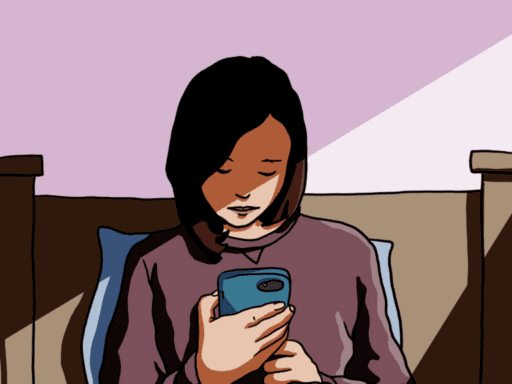This period of social distancing may increase our loneliness, but it’s really only exacerbating a problem that’s been building for years.
/cdn.vox-cdn.com/uploads/chorus_asset/file/15986155/Vox_The_Highlight_Logo_wide.jpg)
Part of the Pandemic Issue of The Highlight, our home for ambitious stories that explain our world.
/cdn.vox-cdn.com/uploads/chorus_asset/file/19916247/Hirsch_1.png)
/cdn.vox-cdn.com/uploads/chorus_asset/file/19886693/Hirsch_2.png)
/cdn.vox-cdn.com/uploads/chorus_asset/file/19886695/Hirsch_3.png)
/cdn.vox-cdn.com/uploads/chorus_asset/file/19886697/Hirsch_4.png)
/cdn.vox-cdn.com/uploads/chorus_asset/file/19886698/Hirsch_5.png)
/cdn.vox-cdn.com/uploads/chorus_asset/file/19886699/Hirsch_6.png)
/cdn.vox-cdn.com/uploads/chorus_asset/file/19886700/Hirsch_7.png)
/cdn.vox-cdn.com/uploads/chorus_asset/file/19886701/Hirsch_8.png)
/cdn.vox-cdn.com/uploads/chorus_asset/file/19886702/Hirsch_9.png)
/cdn.vox-cdn.com/uploads/chorus_asset/file/19886703/Hirsch_10.png)
/cdn.vox-cdn.com/uploads/chorus_asset/file/19886705/Hirsch_11.png)
/cdn.vox-cdn.com/uploads/chorus_asset/file/19886706/Hirsch_12.png)
/cdn.vox-cdn.com/uploads/chorus_asset/file/19886707/Hirsch_13.png)
/cdn.vox-cdn.com/uploads/chorus_asset/file/19886708/Hirsch_14.png)
/cdn.vox-cdn.com/uploads/chorus_asset/file/19886711/Hirsch_15.png)
/cdn.vox-cdn.com/uploads/chorus_asset/file/19886712/Hirsch_16.png)
/cdn.vox-cdn.com/uploads/chorus_asset/file/19886713/Hirsch_17.png)
/cdn.vox-cdn.com/uploads/chorus_asset/file/19886714/Hirsch_18.png)
/cdn.vox-cdn.com/uploads/chorus_asset/file/19886715/Hirsch_19.png)
/cdn.vox-cdn.com/uploads/chorus_asset/file/19886717/Hirsch_20.png)
/cdn.vox-cdn.com/uploads/chorus_asset/file/19886718/Hirsch_21.png)
/cdn.vox-cdn.com/uploads/chorus_asset/file/19916249/Hirsch_22.png)
/cdn.vox-cdn.com/uploads/chorus_asset/file/19886724/Hirsch_25.png)
/cdn.vox-cdn.com/uploads/chorus_asset/file/19886725/Hirsch_26.png)
/cdn.vox-cdn.com/uploads/chorus_asset/file/19898700/Hirsch_22.png)
/cdn.vox-cdn.com/uploads/chorus_asset/file/19898701/Hirsch_23.png)
Selected Sources:
“Why You Never See Your Friends Anymore” The Atlantic
“The Friendship Crisis: Making and Keeping Friends as an Adult” Parents.com
“Why Is It Hard to Make Friends Over 30?” The New York Times.
“Millennials are officially the loneliest generation” Vice
“How Friendships Change When You Become an Adult” The Atlantic
Aubrey Hirsch is a writer and illustrator in Berkeley, California. Her work has appeared in the Nib, the New York Times, the Rumpus, and elsewhere.
Author: Aubrey Hirsch
Read More



